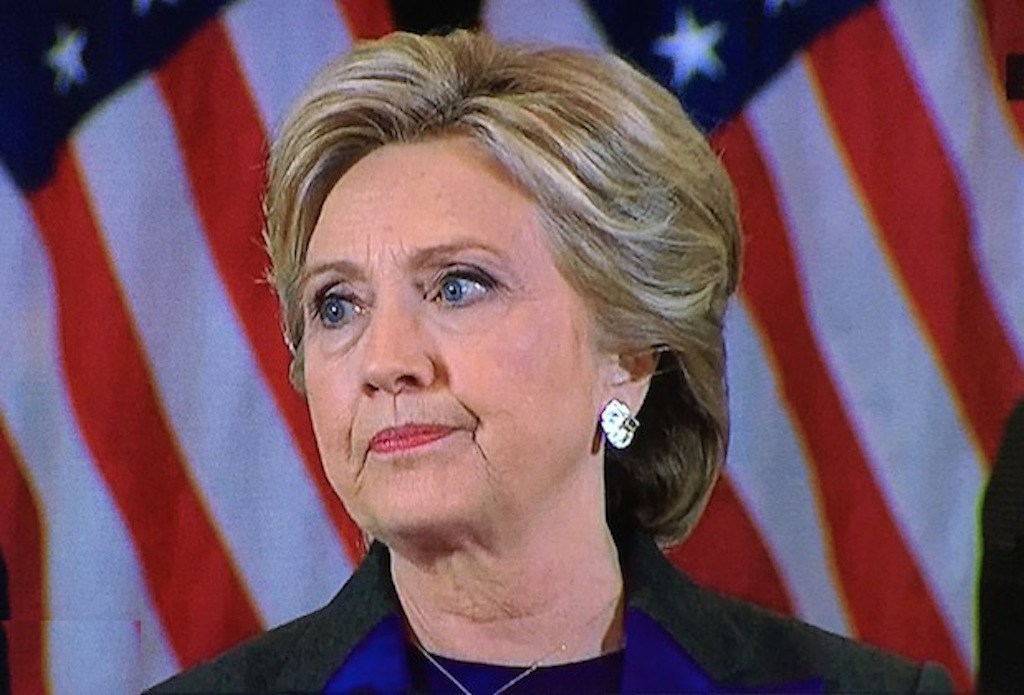
Hillary Clinton’s top aides would like the world to know they are morally superior to Donald Trump and his staff, who ran an ugly campaign courting white nationalists. The Clinton crew is right. And it doesn’t matter.
At a vicious Harvard University post-mortem seminar on the 2016 election, Clinton field marshals excoriated Team Trump. “If providing a platform for white supremacists makes me a brilliant tactician, I am proud to have lost,” Clinton aide Jennifer Palmieri declared. “I would rather lose than win the way you guys did.”
There are three possible choices to be made in the logical universe in which a political party is running a fascist campaign. People can 1) join the fascists, 2) lose to the fascists or 3) defeat the fascists. The Clinton campaign wants credit for not choosing door No. 1. Their job was to make option three a reality. History will remember them for number two.
Clinton ran against the single most unpopular candidate in the history of American presidential polling, and lost. Was this because Russians hacked the Democratic National Committee? Because FBI Director James Comey recklessly interfered? Because a tiny fraction of the electorate voted for Jill Stein? Because Clinton didn’t really bother to campaign in the Rust Belt? Why, yes! In an election decided by 110,000 votes, just about every factor can be considered decisive.
But Clintonia’s (persuasive) defense of its own righteousness helps explain why the election was close to begin with. Trump ran a deeply bigoted campaign that whipped up and played off of white resentment. But his dominant performance among white working-class voters wasn’t due to his campaign message alone. Much of Clinton’s poor performance resulted from her campaign’s strategic decision to not even contest the demographic. A good chunk of the Democratic Party intelligentsia applauded Clinton for taking the moral high ground, declaring the entire white working class to be a deplorable racist swamp. The notion that economic issues played literally no role ― zero ― in Trump’s appeal became a common Democratic talking point. Democrats were Good People, and anyone even considering voting for Trump was a Bad Person.
There is no need to pretend the white working class is a monolith of moral excellence. Many working-class people, like many middle- and upper-class people, are bigoted, hostile to all kinds of people and lifestyles. But the job of a presidential candidate is to appeal to our better angels and win votes anyway. In 2008, the Democratic coalition included millions of black churchgoers who opposed same-sex marriage. In 2012, Democrats welcomed millions of Catholic Latino voters who opposed abortion. These people were not scolded for their shortcomings but celebrated for their virtues. This year, Democratic elites decided that the entire white working class was unworthy of sharing their company.
The town of Nelsonville, Ohio, went for Barack Obama by 40 points in both 2008 and 2012. It’s 94 percent white, and, as Dave Jamieson reported for The Huffington Post, Trump narrowly carried it in 2016. Is this because Nelsonvillers are all morally repugnant slime? A lot of them were enthusiastic about the Trump Wall. But somehow the Democratic Party was OK with these same people voting for Obama, twice. This year, the party decided it was above such compromises.
In an era of extreme economic inequality, the votes are where the money isn’t ― the working class. Writing off the white working class is a pretty bad way to start, especially if the party can’t run up the score with the black and brown working class. And the Clinton campaign didn’t run up the score. Trump ― who opened his campaign by deriding Mexicans as “rapists” ― outperformed Mitt Romney’s presidential campaign among black and Latino voters.
Being pro white working class doesn’t mean being anti-brown working class. True, Bill Clinton campaigned on white working-class grievances against the black and brown working class, and he governed with tragic results (welfare reform, the crime bill). But Obama aggressively courted working-class voters of all colors with a populist economic assault straight out of Franklin Delano Roosevelt’s campaigns. Obama’s entire 2012 message was devoted to trashing Romney as a corporate raider who said “corporations are people.” Obama ran ads blasting Romney’s tax-dodging Cayman Islands investment funds. The Obama campaign relentlessly touted the Detroit auto bailout as a win for working people. At the time, nobody in the Democratic Party’s chattering class saw a conflict between the first black president courting black voters and white working-class voters at the same time. Today, we are told that “identity politics” and “economic justice” are incompatible.
This is ridiculous. But it’s not fair to blame it all on the Clinton campaign. Democratic elites cleared the nomination field for a candidate who was being criminally investigated by the FBI, a woman with a nine-figure net worth who was still pursuing six-figure Wall Street speeches when she announced her presidential bid. Her “identity politics” record with the black and brown working class was awful. She had supported her husband’s racist welfare reform and crime legislation, and warned against the threat of black “super-predators.” The problems weren’t all ancient ’90s history. In 2014, Clinton said that child refugees seeking asylum in the United states “should be sent back.” And, you know, the Iraq war thing.
All of this was obvious to the Democratic Party, which plowed ahead anyway, insisting that anyone who wasn’t on board with the first woman president was a vile sexist.
“Stronger together,” in retrospect, was a pretty good campaign theme. It’s too bad the Clinton camp didn’t think it applied to people living below the median household income.
“So, That Happened” is hosted by Jason Linkins, Zach Carter and Arthur Delaney. It is produced, edited and engineered by Christine Conetta.
To listen to this podcast later, download our show on iTunes. While you’re there, please subscribe to, rate and review our show. You can check out other HuffPost podcasts here.
END

Be the first to comment